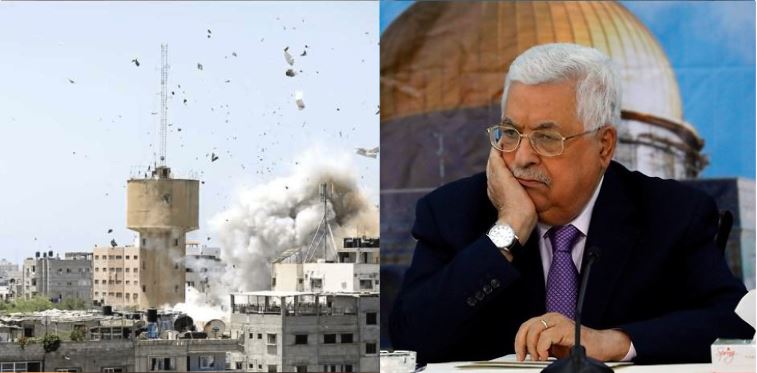As the Israel-Gaza conflict escalates, not many have noticed how more people died in Gaza due to Hamas rockets falling short of targets than the number of casualties in Israel due to Hamas aggression. This is really symbolic of what Hamas aggression against Israel implies. Hamas attacked the Jewish nation, but it has not much to do with Israel. The real target of Hamas aggression is the removal of Fatah leader Mahmoud Abbas.
To understand this, we must go back by a few months. In September 2020, Hamas, which runs Gaza, and Fatah, which presently heads the government in West Bank, decided to hold Parliamentary and Presidential polls in Palestinian territories for the first time since 2006. Long story cut short – Fatah leader Mahmoud Abbas knew that Hamas is in a winning position, so he found an excuse to postpone elections. And Hamas, therefore, reacted the way it did.
The Palestinian territories were supposed to hold Palestinian Legislative council elections on May 22, Presidential polls on July 31 and PLO’s Palestinian National Council elections on August 31.
As per Critical Spectator, Fatah was facing several internal divisions that gave Hamas a big advantage ahead of the elections. Abbas has been used to controlling Fatah with an iron fist.
But breakaway factions have fractured Fatah from inside. One such faction is led by Fadwa Barghouti, the former leader of Fatah’s paramilitary wing, who is serving five consecutive life sentences in an Israeli jail. He has been behind the bars since 2002 and his election bid is supported by Nasser al-Qudwa, Yasser Arafat’s nephew.
In March, Fatah was polling at 43 per cent, as against Hamas’ 30 per cent. But Barghouti is expected to steal a big share of the Fatah vote. It is expected that 20 to 30 per cent of the voters will choose Barghouti’s faction and most of these voters will abandon Fatah. Fatah is also facing the risk of losing some votes to the former head of Palestinian security, Mohammed Dahlan.
A three-way division of the Fatah vote can really change the ultimate result of the Palestinian elections, effectively relegating Fatah to the second or even the third spot. Hamas, on the other hand, will be able to rise as the largest party in the Council, giving it a chance at forming the government.
But on April 29, Abbas decided to postpone the elections indefinitely. The announcement wasn’t really much of a surprise, and the Fatah leader found a handy excuse in East Jerusalem.
Elections cannot be held in East Jerusalem without Israeli participation as Palestinian Authority is banned from operating in the city. Israel has been dragging its feet from arranging Palestinian elections in East Jerusalem and Fatah, therefore, argues that polling cannot take place unless Palestinians from the city are guaranteed full participation.
Hamas, of course, described the indefinite postponement of elections by Abbas as a coup. Hamas felt that it could gain a stronghold over West Bank – the Palestinian territory currently out of its control.
So, around a week after the postponement of elections was announced, protests erupted at the Temple Mount. The situation soon escalated into hostilities, as Hamas launched a barrage of rockets ostensibly targeting Israel.
Presently, Hamas claims that it is attacking Israel in order to protect the Al-Aqsa Mosque compound and to strong-arm Israel against evicting Palestinians from Sheikh Jarrah in East Jerusalem. This is a part of Hamas’ strategy to convince Palestinians that it is their messiah.
With attacks on Israel and correlation with what is viewed as the Palestinian cause, Hamas is building up a narrative of being the true protector of Palestine. This is the propaganda part of Hamas’ hostilities against Israel. The real object, however, is to gain control over the West Bank by using a deadly war to mobilise public sentiment in Palestinian territories.








